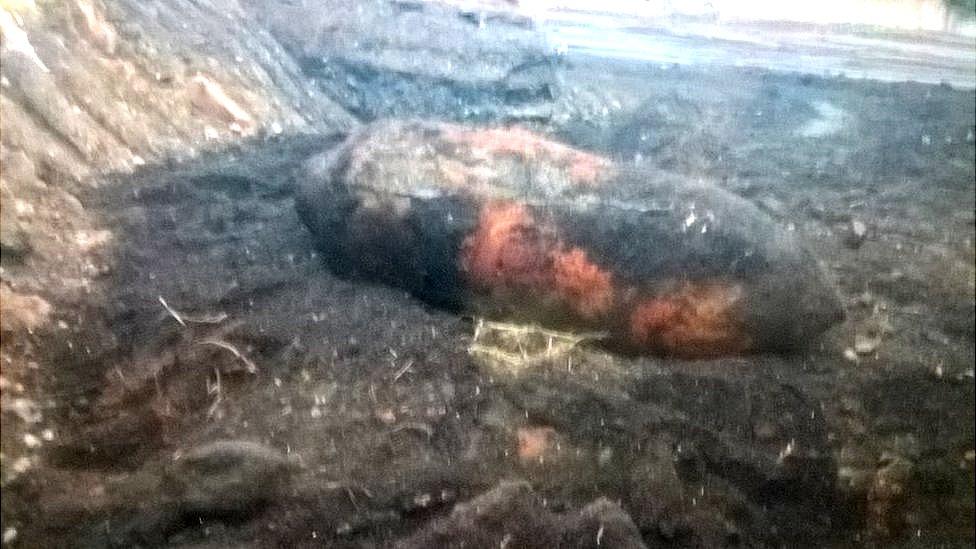WW2 bomb detonated safely near M6 in Birmingham
- Published
A West Midlands Police drone filmed the controlled detonation
A large World War Two bomb that forced a major route in Birmingham to close for almost two days has been detonated.
The closure of the A38(M) Aston Expressway caused long delays for drivers, cancelled rail services and led to the evacuation of hundreds of homes.
Residents slept in a gym overnight as a police cordon was put in place.
Thirteen lorry loads of sand created an "igloo" around the 250kg device before it was detonated at about 15:30 BST.
Exit and entry slip roads of the M6 at junction six, Spaghetti Junction, were closed on Monday morning after the discovery at a construction site.
Traffic police also shut the motorway between junction four, near Coleshill, and seven at Great Barr - a distance of about 14 miles - while the detonation was carried out.
Both the M6 and the A38 Aston Expressway have since reopened.
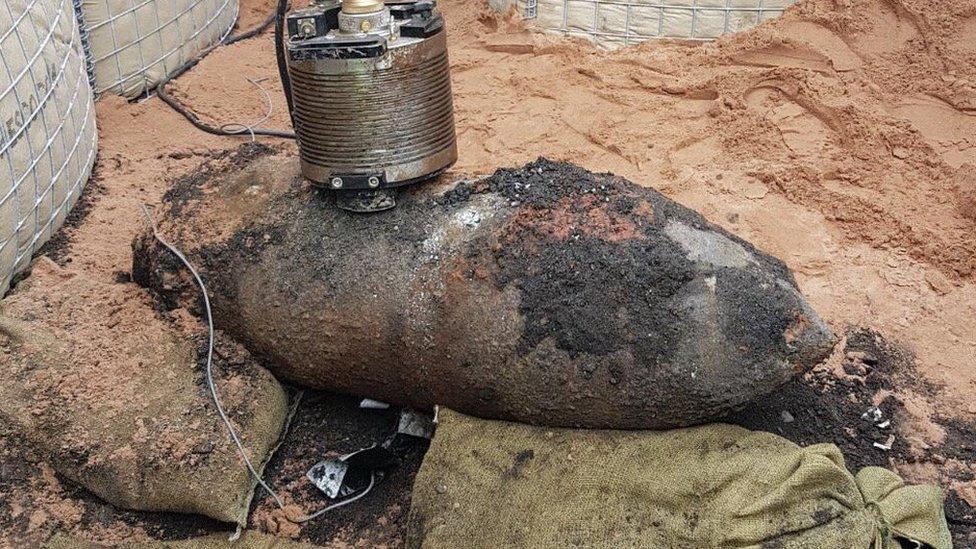
The WW2 bomb that experts say contains "139kg of high explosives" was detonated on Tuesday afternoon
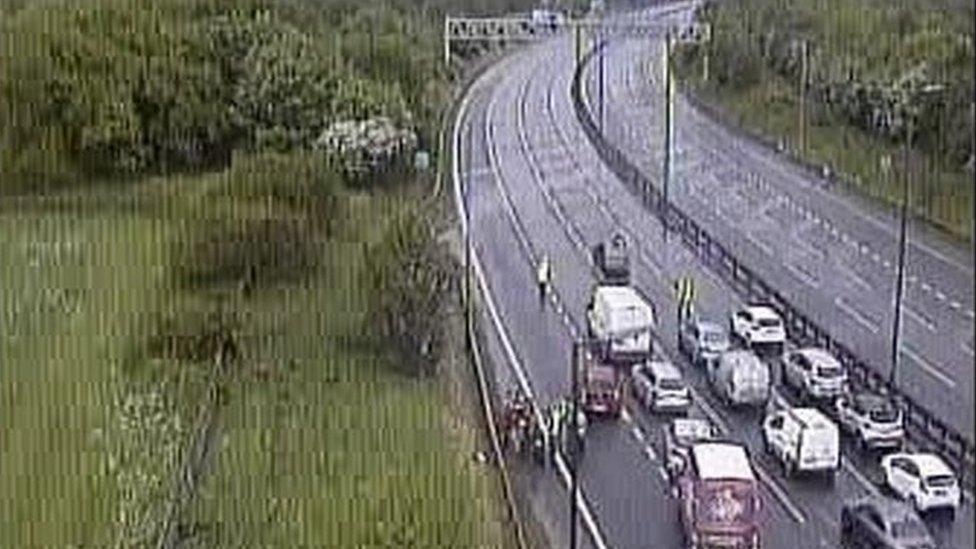
Highways England tweeted a photo of traffic being held at junction seven of the M6 southbound ahead of the explosion
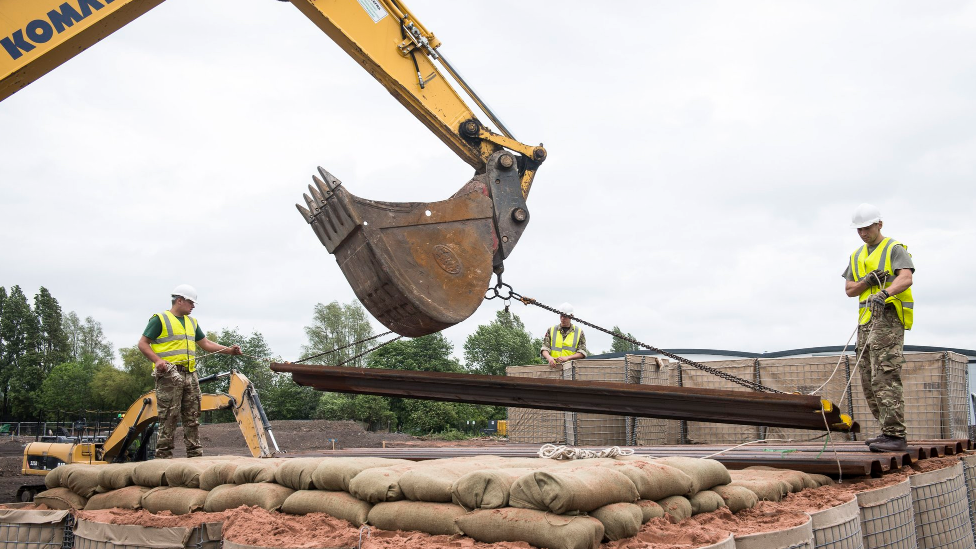
Sand was put around the bomb before detonation
A 500m-cordon was set up by police after the device was discovered in Priory Road, Aston, at about 09:45 BST on Monday.
Homes and businesses were evacuated and London Midland rail services on the Cross City Line between Lichfield and Birmingham New Street were suspended.
Rail services "may" resume on Wednesday, Network Rail said.
About 80 people were forced to spend the night in a temporary rest centre, the Red Cross said.
Mike Luedicke, deputy commander of the Army's UK bomb disposal unit who co-ordinated the operation, said the team was "very confident it was a classic Second World War German air drop bomb".
He said it had been a particularly "complex" case because the fuses were "on the underside and pressed into the earth and so our process of identification and diagnostics has been a real challenge".
After the explosion, people started using social media to say they heard the blast from several miles away.
Army makes safe wartime bomb found in Aston

Police thanked residents and motorists for their patience and praised the bravery of the bomb disposal experts who had been at the site overnight making the device safe.
About 250 tonnes of sand were put around the device, described as an SC2 50, with 139kg of high explosives.
Residents said they had been told by police they could be out of their homes until about 18:00.
Paige Collins, of Aston, and her 10-month-old daughter, were among those who spent the night at Alexander Stadium in Perry Barr.
She slept for about "an hour" on a mat and sheet in a "dusty gym" after putting her daughter to sleep in her pushchair.
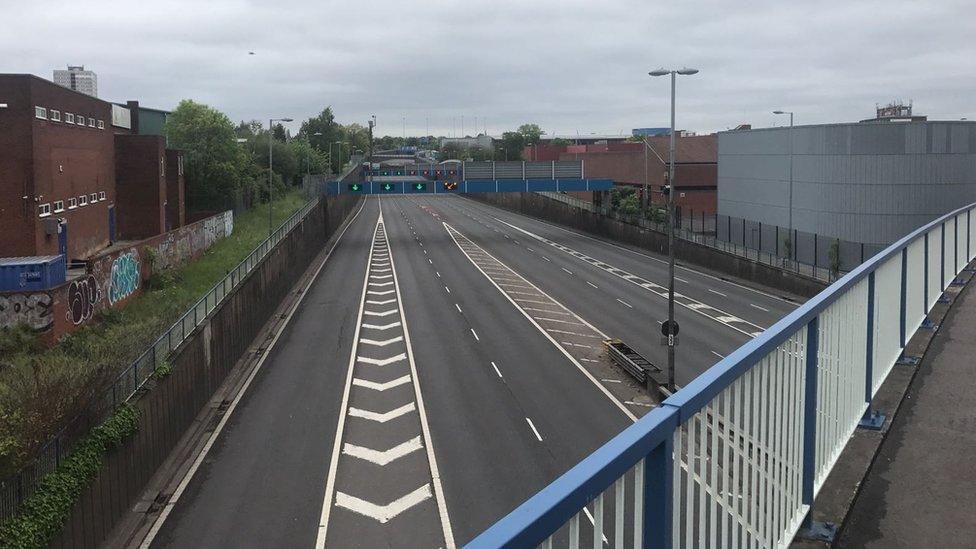
The Aston Expressway which links the M6 and other major routes to Birmingham city centre was shut on Monday morning
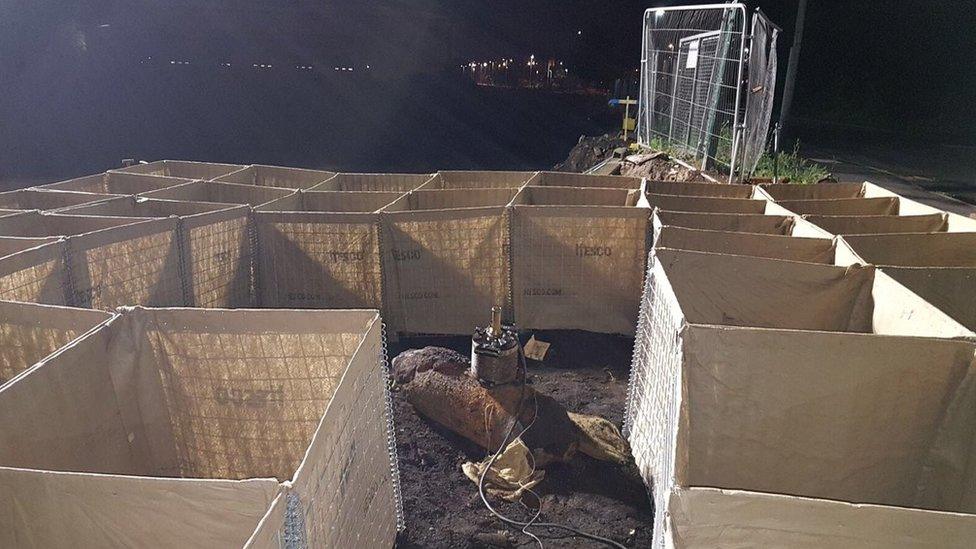
Work at the scene of the bomb carried on into the night on Monday

Analysis: Prof Carl Chinn, University of Birmingham historian
Birmingham was a major munitions centre, as were Manchester and Coventry, and on 19 November 1940, the Germans attacked the city very heavily. At the time, Aston and Tyseley were very industrial areas.
The raid carried on for nine hours on 19 November, but it could have been the next night when this device was dropped.
On 20 November, nearby Queens Road was absolutely destroyed by a big bomb. Queens Road is right next to where this bomb was found.

- Published16 May 2017
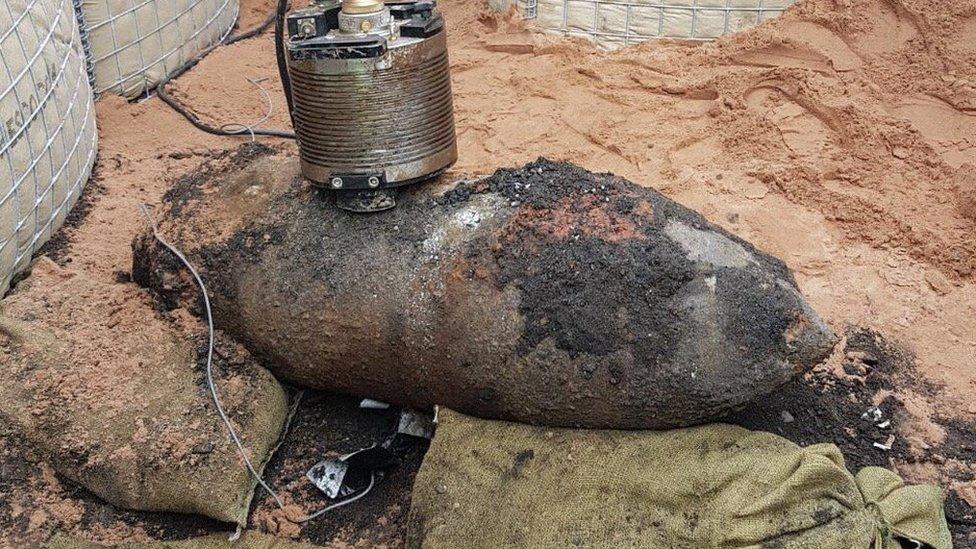
- Published16 May 2017

- Published16 May 2017
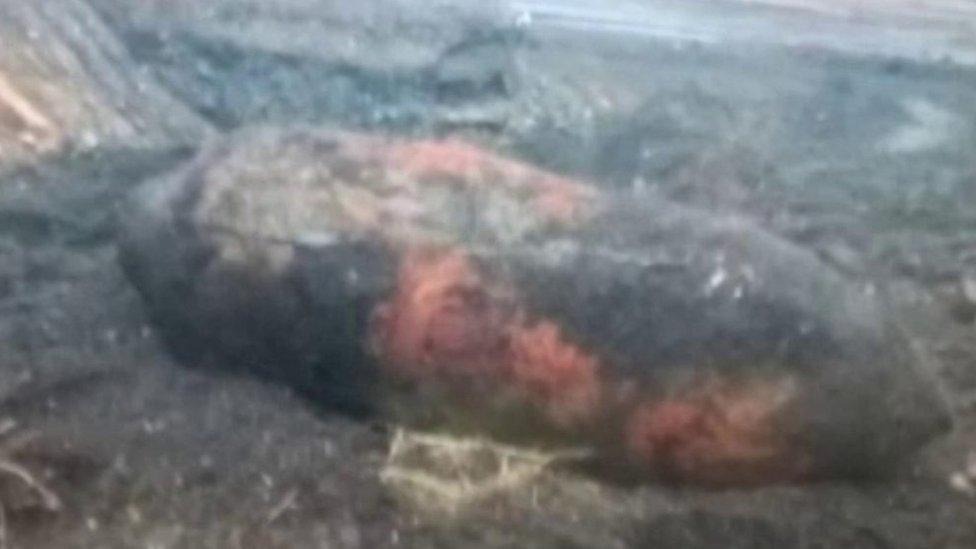
- Published15 May 2017
